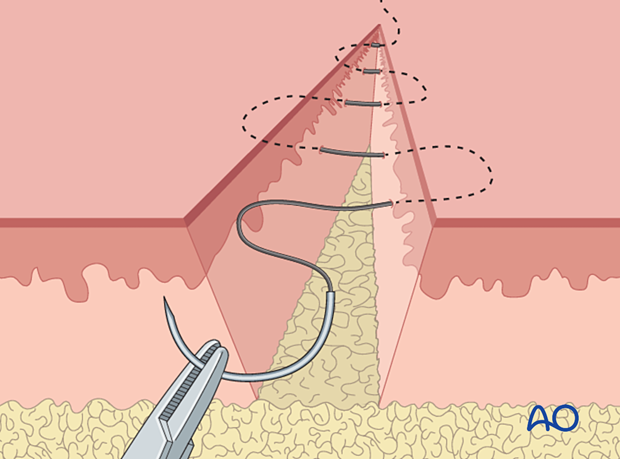Minimally invasive approach to the pediatric distal tibia
1. General considerations
A minimally invasive approach may be used for plating metaphyseal fractures of the distal tibia.
The key concept is protecting the soft tissues and preserving the blood supply in the zone of injury.
The standard approach involves a medial distal tibial incision.
In cases with a compromised medial soft-tissue envelope, an anterolateral approach can be used as an alternative.
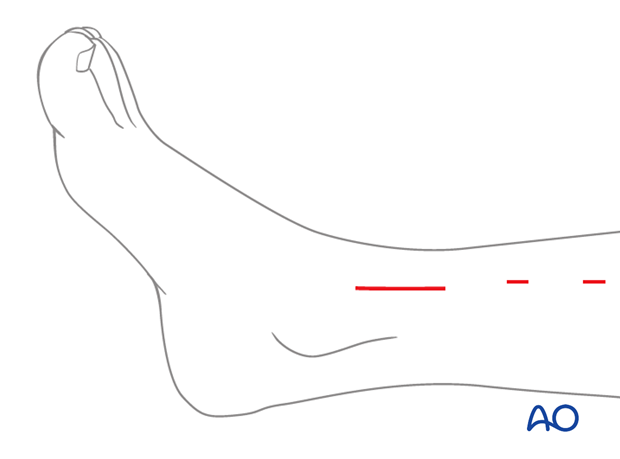
2. Skin incision
Perform a straight or slightly curved skin incision on the medial aspect of the distal tibia.
Start the incision just above the level of the physis, extending proximally, depending on the pattern and level of the fracture and the type of plate.
If the fracture configuration requires crossing the physis with the plate, start the incision at the tip of the medial malleolus.
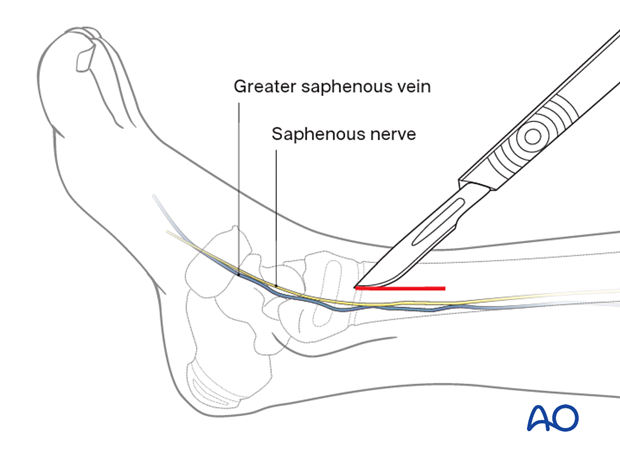
3. Surgical dissection
Deepen the incision through the subcutaneous fat, retracting the greater saphenous vein and saphenous nerve anteriorly with a blunt retractor.
Avoid dissecting the periosteum at the physis to prevent damage to the perichondral ring.
Create a submuscular space by advancing the plate proximally.
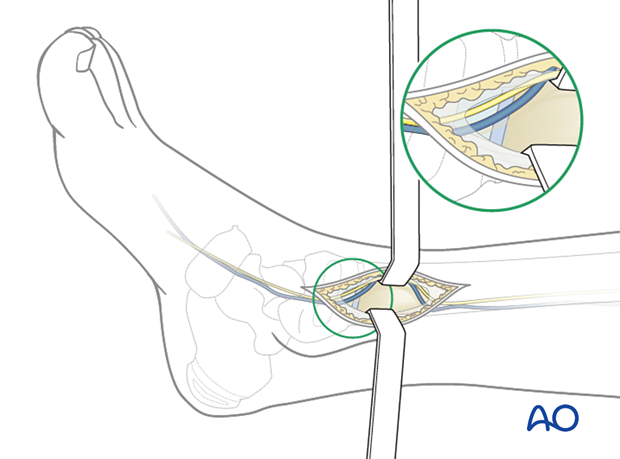
When the plate is correctly positioned, perform separate stab incisions for insertion of the proximal screws.
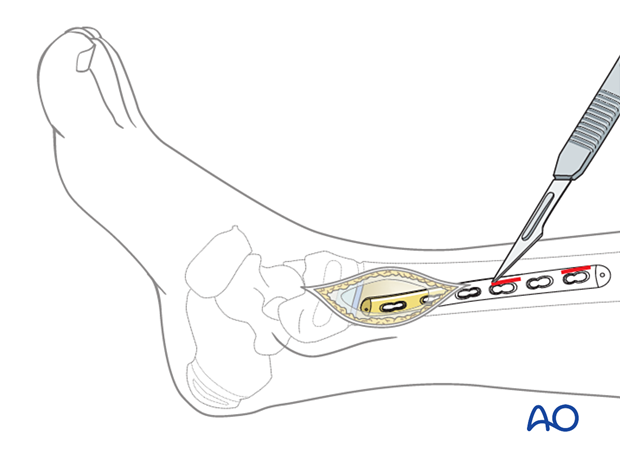
4. Wound closure
After careful hemostasis, close the subcutaneous tissue and skin separately. Subcuticular, absorbable skin sutures may be used if the condition of the soft tissues permit it.
